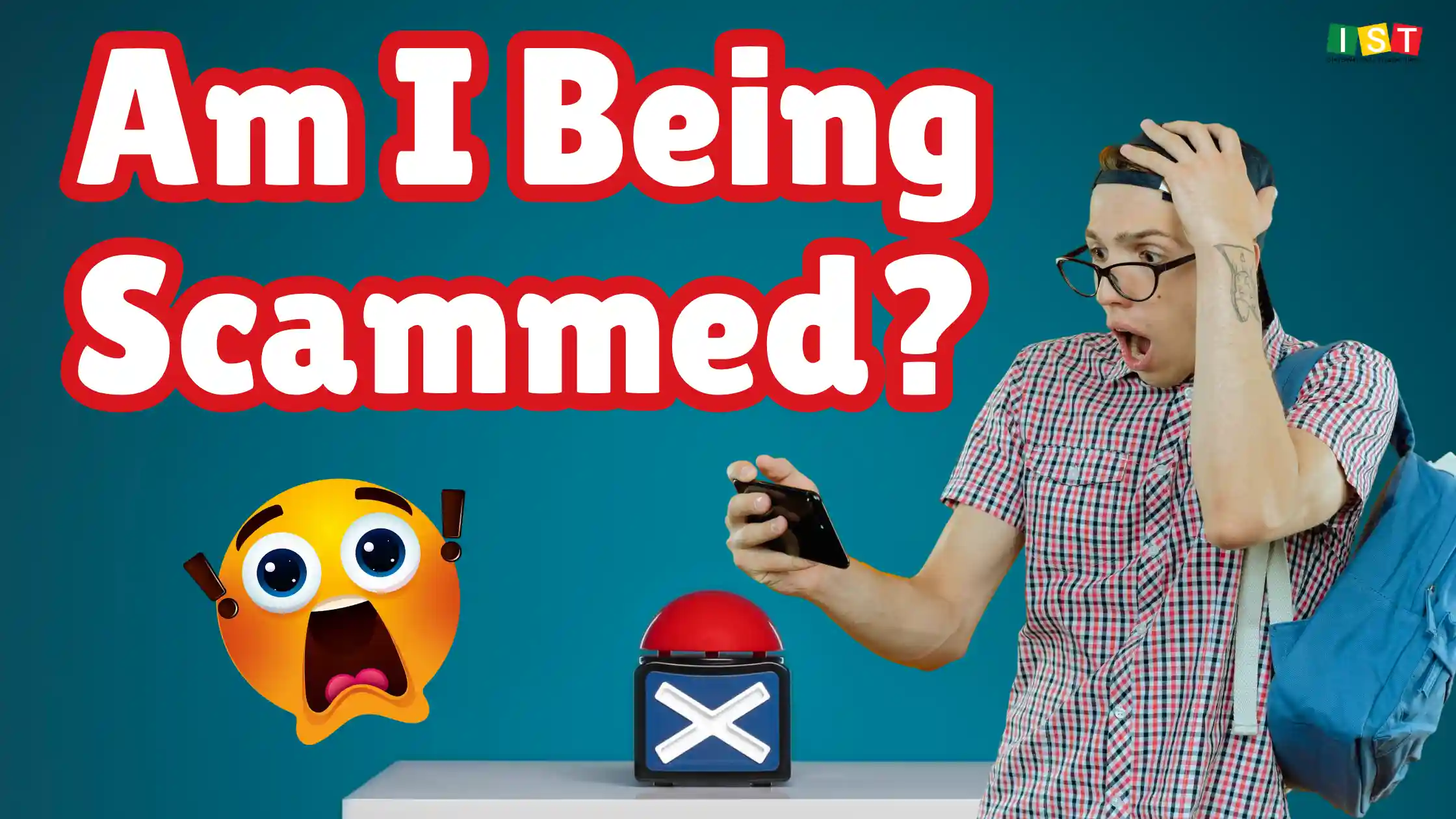
How Can I Protect Myself From Scams?
Nowhere is ever safe. Scammers often target international students in Australia, from fake jobs and rental traps to parcel, visa, and money muling scams. This guide breaks down the most common threats, shows you how to spot red flags, and gives practical steps to protect yourself — so you can stay safe while studying and living Down Under.
Hey, international students! Welcome back for another useful resource on smart living and safety Down Under. Arriving in Australia means new friends, culture, and that first flat white—what could go wrong? Unfortunately, it’s also a time when many scammers target international students as easy victims. According to the Australian Competition & Consumer Commission (ACCC), over $5 million was lost to student-related scams in early 2025 alone—quite alarming, right? To help you stay safe and scam-free while juggling visas, budgets, and studies, this post will walk you through how to spot scams, key protection tips, and what to do if you ever fall victim.
Am I Being Scammed? Common Threats to Watch For
Thousands of scams exist, but here are the four most common ones—plus money muling, a sneaky trap often overlooked.
💼 Job or Online Work Scams
“Earn $50 an hour for easy data entry—work from home or in-office!” Sounds tempting, right? Posts like these ask you to fill a quick form, then later request fees or banking details. No proper interview or official contact? Red flag. Real employers don’t charge to start.
Tip: Stick to verified job platforms or company websites. Unsure? Ask you uni’s career office or a trusted support service.
🏠 Rental or Housing Scams
“Wow, that looks luxurious at a reasonable price!” Pictures can catch you off guard, but vague descriptions, claims like “owner moved overseas”, or Airbnb rentals without verification are suspicious. Never pay bond, deposit, or holding fees before viewing or signing a lease.
Tip: Always inspect in person or via a verified link. Trust your gut—if it feels off, report it.
📦 Parcel Not Delivered Scams
You might get a text saying your parcel is “stuck at the warehouse” or “can’t be delivered due to missing details”, followed by a fake link to steal your personal data. Scammers rotate numbers to stay tricky.
Tip: Don’t click unknown links. Check tracking on the courier’s official site, and block suspicious numbers.
🛂 Visa Threat Scams
Scammers may call or message claiming your visa has expired or is expiring soon: “Pay this fine or face deportation!” They act as Home Affairs, police, or other trusted authorities, using fear to rush you into paying or sharing personal info.
Tip: The Department of Home Affairs never contacts you demand money. Always verify directly through official channels before taking any action.
💸 Money Muling Scams
Some scammers ask you to “help transfer money” through your bank or a crypto wallet, promising payment. It may seem harmless, but it’s a crime—using your account this way can lead to visa cancellation or criminal charges.
Tip: Never agree to transfer money for someone else. If approached, report it immediately to your bank or Scamwatch.
🛡 How to Protect Yourself from Scams
Prevention is your best defense—here's how:
- Verify Everything: Double-check emails or calls by contacting the organisation directly through official websites (e.g., ato.gov.au for tax, homeaffairs.gov.au for visas). Never click suspicious links—type the URL yourself.
- Guard Your Info: Don’t share personal details, bank info, or passports unless you’re sure it’s real. Use strong passwords and turn on two-factor authentication on accounts.
- Watch for Pressure: Scammers push you to act fast. Take a moment to think and ask friends, uni advisors, or support services if unsure.
- Use Trusted Platforms: Apply for jobs through your uni portal or verified sites like Seek. Rent via realestate.com.au or domain.com.au. Report any suspicious ads.
- Stay Updated: Follow Scamwatch for alerts and join uni workshops on fraud—many are free for international students.
🚨 What to Do If You Get Scammed
- Stop and Protect: Change your passwords and tell your bank if your account or card details were shared. They can freeze accounts to prevent more loss.
- Report It: Contact your bank for possible refunds. Report the scam to Scamwatch or the ACCC. For identity theft, use IDCARE.
- Ask for Help: Your uni’s international office can support you with counseling or legal advice. For police matters, call 131 444 or contact the Australian Federal Police (AFP).
- Recover Money Quickly: If you sent money, your bank may reverse it—contact them within 24 hours. Track progress through Scamwatch.
Remember: Reporting scams help protect others—you’re not alone!
Remember: Safety First
Scams target international students, but knowledge is your best defense. Always verify sources, guard your personal and banking info, and use trusted platforms for jobs and rentals. If you fall victim, act fast: report to Scamwatch, your bank, or IDCARE, and seek help from your uni or the AFP if needed. Staying alert keeps both your wallet and peace of mind safe.
Suggested Blogs

 Social & Network
Social & Network
 Student Support
Student Support
 Safety & Wellbeing
Safety & Wellbeing